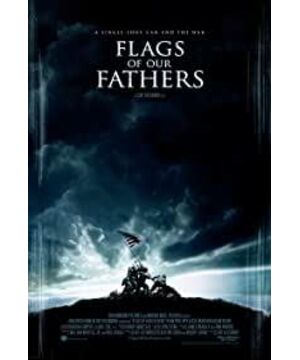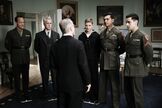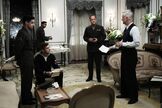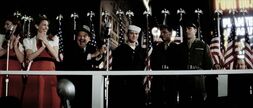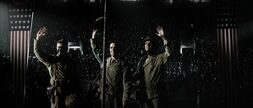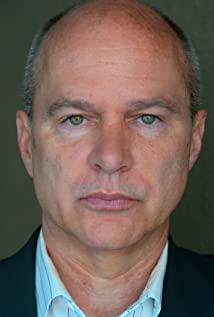Based on the real history of "The Flag of Our Fathers", explore the story behind the famous photo "American Soldiers Raise the Flag on Iwo Jima" from the Battle of Iwo Jima in World War II. There are magnificent and cruel war scenes, politicians' disdainful faces, the helplessness of misunderstandings, and the pain of losing each and every life. The film objectively restores history. The hail of bullets on the battlefield corresponds to the fireworks at the fundraising rallies. People's worship of heroes is compared with the real inner suffering of the soldiers. Three of the six people who raised the flagpole then died, and the living enjoyed flowers and applause. No one wants to be that hero, and no one goes to war in order to be a hero. These fresh lives meet the hail of bullets for the motherland, their families, and their comrades. "What kind of war is this? This is massacre!" In the battle of Iwo Jima, where both sides suffered heavy casualties, you survived not because you were a hero, but just because of luck! There are several shocking details in the movie: the soldier who fell into the water was struggling, and the comrades on the ship were joking as they dropped the lifebuoy. They didn't begin to understand the ruthlessness of war until they realized that there was no ship and no ship would stop to save the soldier. The pictures of them flying the American flag were made into dessert, drizzled with bright red sauce, and it was as if blood was left on everyone, in the place. Yes, people who haven't experienced war can eat this sacrifice as dessert. One of the six was misidentified, and the politicians could no longer correct their mistakes. What they were concerned about was how much money they could raise to fight the war. This seemed ruthless, but it was a last resort, because what they wanted was to win the money and win the war! For the mothers of the victims, the sacrifice of their children is already heartbreaking, and knowing that their children are one of the banner bearers, even if it is just a white lie, is enough comfort! When the war is over, people return to normal life, no more flowers and applause, history is sealed, and the survivors have lived the life of ordinary people. I can't say who is right and who is wrong, I have no choice but to hate this damn war! The soundtrack is really beautiful! Ten years after the film was released, Ang Lee shot "Billy Lynn's Halftime Battle" with the Iraq War as the background. The narrative style and shooting style are very similar to this film. Half a century later, the reality is still so cruel.
View more about Flags of Our Fathers reviews


